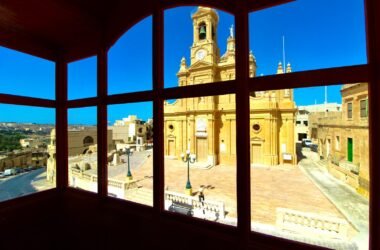Der Umzug in ein neues Land oder die Erweiterung eines Unternehmens bringt finanzielle Verpflichtungen mit sich, und Malta ist da keine Ausnahme. Steuern, Kosten und Vorschriften sind ein wichtiger Teil des Prozesses, und es ist immer am besten, sich im Voraus einen Überblick zu verschaffen.
In diesem Artikel geben wir Ihnen einen Überblick über die wichtigsten Dinge, die Sie über die Verwaltung Ihrer Finanzen in Malta wissen sollten.
Persönliche Einkommensteuer vs. Körperschaftssteuersätze
Die Einkommensteuersätze reichen von 0% bis 35%je nach Einkommen, wobei für qualifizierte Expatriates spezielle Steuerprogramme zur Verfügung stehen. Außerdem hat Malta mit vielen Ländern Abkommen zur Verhinderung von DoppelbesteuerungDas bedeutet, dass im Ausland ansässige Personen nicht befürchten müssen, für dasselbe Einkommen doppelt besteuert zu werden.
Unternehmen in Malta zahlen eine Unternehmenssteuer Steuersatz von 35%Aber verschiedene Erstattungssysteme und Anreize senken die tatsächliche Steuerlast, insbesondere für ausländische Investoren. Unternehmen in Bereichen wie Glücksspiel, Technologie und Finanzdienstleistungen können von zusätzlichen Abzügen oder besonderen Steuerregelungen profitieren.
Die Lebenshaltungskosten Abhängig von der gewählten Region

Wie in jedem anderen Land hängen auch in Malta die Lebenshaltungskosten von der jeweiligen Region ab. In Städten wie Valletta und Sliema sind die Wohnungspreise höher, und die Kosten für die täglichen Ausgaben wie Versorgungsleistungen und Transport sind höher.
Kleinere Städte und ländliche Gebiete sind erschwinglicher. Wenn Sie einen Umzug planen, empfehlen wir Ihnen, sich über verschiedene Stadtteile und deren Kosten zu informieren, damit Sie ein realistisches Budget festlegen können. Oder wenden Sie sich bitte an unser Team für professionelle Unterstützung bei Umzügen, und wir werden Sie bei jedem Schritt unterstützen.
Eröffnung eines Bankkontos
Ohne ein Bankkonto ist es unmöglich, in einem neuen Land zu leben und seine Finanzen reibungslos zu verwalten. Sie benötigen ein Konto für alltägliche Transaktionen, z. B. für den Erhalt eines Gehalts oder für geschäftliche Zahlungen. Die meisten Banken verlangen einen Wohnsitznachweis, einen Ausweis und in einigen Fällen auch einen Nachweis über Beschäftigung oder Einkommen.
Malta verfügt über einen gut ausgebauten Finanzdienstleistungssektor mit Möglichkeiten für Investitionen, Versicherungen und Vermögensverwaltung. Expats, die ihr Geld effektiv verwalten möchten, sollten sich über die verschiedenen verfügbaren Finanzprodukte informieren.
Beiträge zur Sozialversicherung (Renten und Gesundheitswesen)
Expats, die in Malta arbeiten, müssen ihren Beitrag zur Sozialversicherungssystemdie die Renten- und Krankenversicherung abdeckt. Wenn Sie angestellt sind, werden die Beiträge automatisch von Ihrem Arbeitgeber eingezogen. Wenn Sie selbständig sind, müssen Sie diese Beiträge selbst entrichten.
Verfolgen Sie die Wechselkursschwankungen

Da in Malta der Euro (€) verwendet wird, sollten Personen mit Einkommen oder Investitionen in anderen Währungen die Wechselkursschwankungen im Auge behalten. Änderungen des Währungswerts können sich auf Ersparnisse, Gehälter oder Geschäftstransaktionen auswirken. Es könnte sich daher lohnen, einen Finanzexperten zu Rate zu ziehen, um Strategien zur Steuerung von Wechselkursrisiken zu entwickeln.
Ruhestandsplanung in Malta
Für Expats, die sich in Malta zur Ruhe setzen wollen, ist es nützlich zu wissen, wie das lokale Rentensystem mit den Rentensystemen anderer Länder zusammenspielt. Einige Personen können Renten aus mehreren Quellen beanspruchen, so dass die richtige Koordinierung dieser Leistungen zu einem stabilen Einkommen im Ruhestand führen kann.
Überprüfen Sie die Malta-Ruhestandsprogramm um herauszufinden, ob Sie die Kriterien erfüllen.
Einige Tipps zur Verwaltung der Finanzen in Malta
- Erfahren Sie mehr über Steuervorschriften - Informieren Sie sich über Steuervorteile und Doppelbesteuerungsabkommen.
- Planung der Lebenshaltungskosten - Städtische Gebiete sind in der Regel teurer als kleinere Städte.
- Ein lokales Bankkonto einrichten - Nützlich für die Bearbeitung von Gehältern und Zahlungen.
- Behalten Sie den Überblick über die Sozialversicherungsbeiträge - Sichert den Anspruch auf künftige Leistungen.
- Devisenkurse überwachen - Wichtig für diejenigen, die in anderen Währungen verdienen oder sparen.
- Optionen für den Ruhestand prüfen - Prüfen Sie, wie das maltesische Rentensystem mit dem Ihres Heimatlandes übereinstimmt.
Abschließende Überlegungen
Bei der Verwaltung der Finanzen auf Malta geht es vor allem darum, das Steuersystem, die Bankmöglichkeiten und die Lebenshaltungskosten zu kennen. Wenn Sie diese wichtigen Schritte kennen, wird es auf jeden Fall einfacher für Sie, egal ob Sie nach Arbeit suchen oder ein Unternehmen auf der Insel gründen wollen.
Weitere Informationen zu diesem und anderen Finanzthemen finden Sie unter expatax.mt.
Weiter lesen:
- Erbschaftssteuer in Malta: Was Sie wissen sollten
- Steuerbefolgung und Berichterstattung in Malta
- Sozialversicherungsbeiträge in Malta







